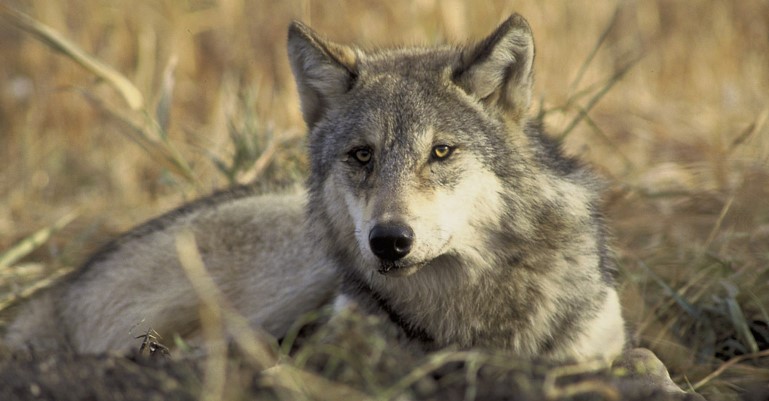Supporters say gray wolf should be considered a success story of Endangered Species Act.

Reps. Dan Newhouse (R., Wash.) and Collin Peterson (D., Minn.) led a bipartisan letter to David Bernhardt, secretary of the U.S. Department of the Interior, and Margaret Everson, principal deputy director of the U.S. Fish & Wildlife Service (FWS), expressing strong support for FWS's proposed rule to delist the gray wolf from the Endanger Species Act (ESA) in the lower 48 U.S. states
“State and local governments, tribes and other stakeholders are best suited to develop effective, local management plans for gray wolf populations. We should be empowering them to do so – not hindering them with unscientific, burdensome federal regulations,” the letter stated.
In 2013, FWS’s review found that gray wolf recovery goals had been achieved and proposed a rule to remove them from the endangered list. After objections from environmental groups, the effort to delist the species based on scientific evidence stalled, and states have been left with growing gray wolf populations that threaten agriculture and livestock, hunting and recreation and other wildlife, the letter said, adding, “We cannot let scientific findings fall victim to politically motivated attacks.”
Management of these gray wolves was transferred from the state to the federal level following two 2014 U.S. district court decisions that reinstated gray wolves under ESA protections. These designations leave farmers and ranchers in those states without a legal avenue to protect their livestock from wolves, supporters of the delisting state.
FWS proposed a rule in the March 15, 2019, Federal Register to remove the gray wolf from the "List of Endangered & Threatened Wildlife."
“The gray wolf should be considered a success story of the Endangered Species Act,” Newhouse said. “Federally delisting the gray wolf will allow Washington state to implement the comprehensive wolf management plan that will give relief to farmers, ranchers and communities that are affected by growing wolf populations. It is time to listen to the experts and scientists who have determined the gray wolf is no longer endangered or threatened and give power back to the states.”
Peterson added, “The delisting of the gray wolf from the Endangered Species Act is something I’ve been working on for a long time. Scientific research clearly shows that the gray wolf population in this country has recovered, especially in the state of Minnesota. State agencies are better equipped to manage wolf populations and should have been doing so years ago.”
The letter was signed by 34 bipartisan members of Congress and will be submitted as an official public comment in the Federal Register. The letter is supported by the Public Lands Council, the National Cattlemen’s Beef Assn. and the American Sheep Industry Assn. The public comment submission period deadline is July 15, 2019.
Those wishing to submit public comments can do so here.
About the Author(s)
You May Also Like



.png?width=300&auto=webp&quality=80&disable=upscale)

